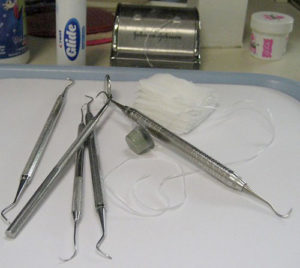
Dental therapists began serving tribal communities in Oregon under a pilot program in 2016. Late last year, the state’s health authority approved another pilot, based at Pacific University, that is soon set to begin educating a small cohort of new therapists.
Now a state senator is backing legislation that would allow the mid-level dental providers, often compared to physician’s assistants, to work throughout the state. The bill, sponsored by state Sen. Laurie Monnes-Anderson (D-Gresham), a retired public health nurse, also would allow dental therapy education programs throughout the state.
The effort is part of a larger push to address barriers contributing to what many state legislators are calling an oral disease epidemic. Nearly half of children in Oregon have a cavity by age nine, Sam Stites reported in a story for the Medford-based Mail Tribune.
Oregon is one of a dozen states that have approved measures allowing dental therapists to practice in at least some capacitys. More states are considering such measures.
The model, allowed for decades in other countries, is championed by public health leaders a more cost-effective way to expand care to long-underserved communities and populations. An estimated 56 million Americans live in federally-designated dental health provider shortage areas.
But dental therapists continue to have detractors. Dental groups such as the American Dental Association (ADA) have long opposed the technically-trained providers, who work as part of dentist headed teams and perform a limited range of necessary services, including preventive and restorative care and some extractions. The dental groups have argued that dentists alone have the training to perform what they term “irreversible surgical procedures,” such as drilling and extracting teeth.
In Oregon, state Rep.Cedric Hayden (R-Fall Creek), a dentist, has voiced his opposition to the dental therapist bill working its way through the statehouse, according to Wyatt Stayner, writing for the Lund Report.
Instead, Hayden is supporting a “Healthy Teeth Bright Futures” initiative that would direct school districts to incorporate age-appropriate oral health instruction into health education courses and create a Community Dental Health Coordinator (CDHC) pilot program in the state, according to the Mail Tribune.
The CDHC model, created by the ADA in 2006, uses community health workers trained to manage cases, provide oral health education and navigate patients in need of services to dentists for care. CDHC graduates, trainees or training programs are located in 45 states, including Oregon, according to the ADA.




